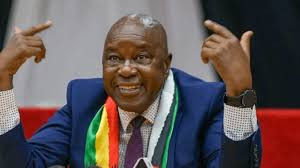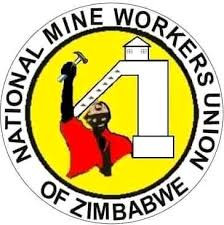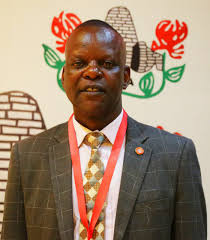URBAN and rural councils in Zimbabwe have been rendered impotent due to political interference, poor calibre of councillors and incompetent managers.
For the past three decades, government policies have robbed councils of financial resources, management expertise and authority.
The perilous state of the nation is starkly mirrored in local government. The ratepayer and common person have been the victims of the resultant dilapidated infrastructure and pathetic service delivery.
Reflect on this: When I grew up in Bulawayo we knew, like clockwork, council would repair our gravel roads every year.
We had school buses, fit for purpose, which ran on time to and from school.
We had an efficiently run council recreation club in Magwegwe with basketball, soccer, netball and boxing facilities, you name it.
Keep Reading
- Mavhunga puts DeMbare into Chibuku quarterfinals
- Bulls to charge into Zimbabwe gold stocks
- Ndiraya concerned as goals dry up
- Letters: How solar power is transforming African farms
We had a council-run and well-stocked library.
A council clinic was our first port of call before travelling long distances to government hospitals.
Zanu PF centralisation of infrastructure and services, which ordinarily should be the responsibility of councils, destroyed governance and management at local government level.
Incompetent political appointees and corruption worsened the situation.
Disappointingly, nothing meaningful has come out of the opposition, which has held sway over local government in recent years.
Be that as it may, I believe a national focus on the following would change the fortunes of local government and our cities.
- Local authorities desperately need people of integrity to stand for election as councillors.
Currently courage and party slogans appear the only qualification requirements. Local government is short of leaders with the expertise to superintend council finances and other technical committees.
- Ceremonial mayors plus poor calibre councillors are a sure recipe for degraded service delivery and decrepit infrastructure. Executive power must be devolved to mayors to ensure effective management of local authorities. A healthy measure of autonomy and strong executive leadership are key in restoring local councils to good health.
Executive mayors must be citizens with integrity, competent professionals with a proven track record in leadership.
- Most local authorities, Harare and Bulawayo included, are manned by unqualified people due to nepotism and political appointments.
Local authorities must be run like companies and attract experts to run human resources, engineering, estates and valuation to name a few.
- Over the past three decades government has crippled the revenue sources of local authorities. Motor vehicle licence fees were taken away from local authorities and centralised under the Zimbabwe National Road Administration (Zinara).
This robbed councils of a huge revenue source for maintaining and rehabilitating road infrastructure. This arrangement must be reversed to better serve ratepayers.
- With the presence of the Transport ministry, there is no justification for the existence of Zinara. Prudence dictates the Transport ministry, and not Zinara, must focus purely on national roads.
So instead of begging government for US$800 million to fix Harare roads, as mayor Jacob Mafume did last week, he should be more strategic and band together with other local authorities to demand this lucrative revenue source back from Zinara.
- Urban authorities, due to poor management, have failed to update their property valuation rolls which would benefit immensely from the mansions going up across the country and other property developments.
This is a huge asset base that the local authorities are sitting on. Councils need competent managers in the valuation and estate departments to carry out this crucial function.
- The beer accounts for Bulawayo and Harare, for instance, must be returned to the cities as it was a great source of funding for social amenities such as recreational clubs and libraries.
The monopoly of brewing and marketing sorghum beer must revert to being the preserve of local councils.
- Lack of quality potable water in Zimbabwe’s urban areas is one of the biggest scandals that the nation has tolerated.
Water shortages are a result of the destruction of urban management capacity by central government and decades of starving water infrastructure of critical investment. And the situation continues to deteriorate.
- Boreholes and the many water tankers which destroy our poor roads are not the solution. These are desperate measures denuding the national water table and adding further strain to already crumbling roads.
That water is life is an obvious and self-evident truth and yet thousands of Zimbabweans are experiencing water poverty in both urban and rural areas. The mind boggles how the nation carries on as if all is normal.
- Solving the water crisis in Harare, Bulawayo and other urban as well as rural areas is, without exaggeration, one of the most pressing matters that the nation faces.
Must we wait for another deadly outbreak of cholera, typhoid or dysentery to inject a sense of urgency? Bulawayo urgently needs reliable sources of water, while Harare cries out for crucial investment in water distribution infrastructure.
- If, indeed, Zimbabwe is open for business, then government must enable councils to manage their affairs unhindered like business enterprises. Indeed, if government is serious about devolution, then local resources and executive authority must be vested at the local level.
Competent and empathetic local leaders best understand the needs of their community not some petty officials in Harare. Let the local authorities pursue commercial ventures and revenue sources, including local taxes.
- Thermal power stations that belonged to Harare and Bulawayo, which were expropriated by Zesa with the help of government must be returned to local authorities.
Incentivise the cities to explore renewable energy projects suitable for their needs and sell excess energy to the national grid. National government must focus on building national generation, transmission and distribution infrastructure that harnesses local capacity.
The overarching and foundational principle here is that central government has enough on its plate that stands in the way of critical and efficient service delivery.
Good governance and management at the local level and not centralisation of power and resources is the solution to efficient service delivery and robust infrastructure at grassroots.
- Trevor Ncube is chairman of Alpha Media Holdings and host of ICWT





